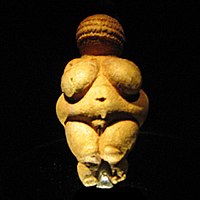|
Vikidia currently has 4,626 articles. Improve it! |
|
Join Vikidia: create your account now and improve it! |
Religion
A religion is a set of beliefs that is held by a group of people. There are many different religions, each with a different set of beliefs. The beliefs are about the world and the people in it, about how they came into being, and what their purpose is. These beliefs are most often linked to "supernatural" beings such as a god, a number of gods or spirits. Each religion has different ideas about these things. Each religion also has a "moral code" which is a set of beliefs about how humans should act. Each religion usually has their own type of "devotions" when people worship or pray. They often have religious "rituals" (special things that are always done in the same way) for certain times of the year or certain times of a person's life.[1]
The main religions in the world today are Christianity, Islam, Hinduism, Buddhism, Taoism, Sikhism, Judaism, Bahá'í, Confucianism and Shinto. These are commonly called World Religions,[2] but there are many others,[3] such as:
People who do not believe in any religion are often called atheists. People who say that they are not sure whether they believe or not are called agnostics.[4][5]
Aspects of religion include narrative, symbolism, beliefs, and practices that are supposed to give meaning to the practitioner's experiences of life. Whether the meaning centers on a deity or deities, or an ultimate truth,[6] religion is commonly identified by the practitioner's prayer, ritual, meditation, music and art, among other things, and is often interwoven with society and politics. It may focus on specific supernatural, metaphysical, and moral claims about reality (the cosmos and human nature) which may yield a set of religious laws and ethics and a particular lifestyle. Religion also encompasses ancestral or cultural traditions, writings, history, and mythology, as well as personal faith and religious experience.
The term "religion" refers both to the personal practices related to communal faith and to group rituals and communication stemming from shared conviction. "Religion" is sometimes used interchangeably with "faith" or "belief system,"[7] but it is more socially defined than personal convictions, and it entails specific behaviors, respectively.
Religion is the word used for a number of cultural phenomena. These phenomena have an influence on thought; very often, religious ideas are the basis of behaviour: Religions often define what is right, and what is wrong. There is no definition of religion that is accepted by all scientists.
Very often, religions are based on tradition. Many religions have rituals that need to be performed by the followers of the given religion. Religions have had a great influence on the arts.[8] Many say there are supernatural beings, usually called gods, or spirits. For some, there is just one, often called god. Other religions speak about principles, such as Dao or Dharma, or they tell about the past or future of Mankind, such as Nirvana, or the Afterlife.
Some religions are very close to philosophy, or they integrated some philosophical teachings, some think spirituality is an important part of religious life.[9][10]
In some cases, religions have become institutions; this is not always the case though.
The biggest religions in the world today are Christianity, Islam, Hinduism, Buddhism, Taoism, Sikhism, Judaism, Bahá'í, Confucianism and Shinto. These are commonly called World Religions,[2] but there are many others,[3] such as:
People who do not believe in any religion are often called atheists,those who say that they are not sure agnostics.[4][5]
At the start[edit | edit source]
It looks like people have had religions for a very long time. The first traces of religions can be found with hominids like homo sapiens and Neanderthals. They started to bury their dead in special ways, about 120.000 years ago. Homo sapiens soon started to be different with the things they gave to the dead. Many works of art were found with burials. Starting about 40.000 years ago, the artworks become more common. Today scientists believe these artifacts had a religious significance. Finding the meaning may be hard, as these people did not have writing yet.
See also[edit | edit source]
References[edit | edit source]
- ↑ [1]
- ↑ 2.0 2.1 "Classical World Religions". http://www.adherents.com/Religions_By_Adherents.html#Classical.
- ↑ 3.0 3.1 "Major Religions by adherents". http://www.adherents.com/Religions_By_Adherents.html.
- ↑ 4.0 4.1 "Secular, Nonreligious, Agnostic, Atheist". http://www.adherents.com/Religions_By_Adherents.html#Nonreligious.
- ↑ 5.0 5.1 "Atheism and Agnosticism". Stanford Encyclopedia of Philosophy. http://plato.stanford.edu/entries/atheism-agnosticism/.
- ↑ The whole experience of a religion can give a systemic and stable character to human life and society; thus a religion may also be thought of as a cultural system. While religion is difficult to define, the standard model of religion as used in religious studies was defined by Clifford Geertz (Religion as a Cultural System, 1973). For an influential critique of Geertz's model see Talal Asad's The Construction of Religion as an Anthropological Category (1982).
- ↑ The words "belief system" may not necessarily refer to a religion, though a religion may be referred to as "belief system."
- ↑ "Britannica - Religion". http://www.britannica.com/EBchecked/topic/497082/religion.
- ↑ "Example of philosophy and religion". http://www.religioustolerance.org/agnostic.htm.
- ↑ "Another example of Philosophy in religion". http://hirr.hartsem.edu/ency/Mysticism.htm.
| Society Portal — All articles about society, culture, and languages ! |
| Wikimedia Commons has media related to: Religion |

